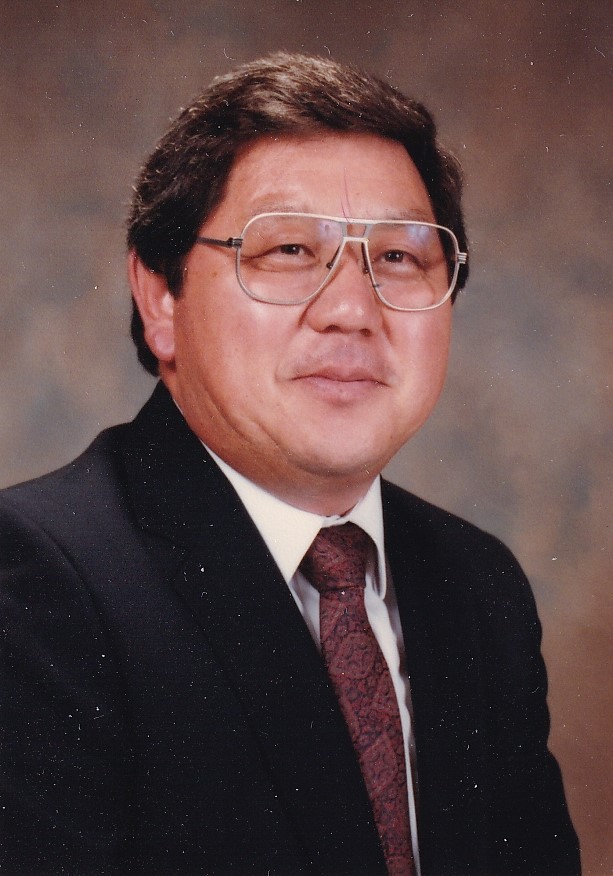Interview with Ken Teshima, 2020

Recorded by Jasmine Proteau, Courtesy of the Lincoln Museum & Cultural Centre, 2020.
Narrator: In 2020, Ken Teshima gave an interview on his experience of moving to Beamsville as a Japanese Canadian during the Second World War.
Jasmine: So where did you and your family come from before you arrived in Ontario?
Ken: Where did we come from? Well, family farm was on Main Island which is one of the coastal islands and is south of Galliano and the pass between the two is called Active Pass. And that’s the pass that going from Vancouver Island to the mainland. And so they had a little farm there with greenhouses and everything.
Jasmine: Do you have any memories of living in British Columbia?
Ken: I guess my first memories are, we were uh, at Great Central Lake in British Columbia in a logging town, and I remember running down this steep, this great big steep hill, to meet my dad at work. And years later, when we went out there, looking for my roots [laughs] there’s nothing there.
Jasmine: So after Canada declared war, you and your family were sent to an internment camp in Hastings Park. Uh, do you remember anything about that time?
Ken: I obviously remember living at Hastings Park. Assigned a little horse stall that we had. I remember wondering one day, why my mother kept saying ‘you go and eat’ and she wasn’t – I guess it was the quality of the food.
Jasmine: And what happened after Hastings Park? Do you remember if the family stayed together?
Ken: My dad and my uncle ended up leaving Hastings Park and going to Scriber, Ontario. I had no idea why as a kid.
Jasmine: And what do you remember about leaving British Columbia?
Ken: My daughter asked me a question one day and I remember saying, you know I remember being on a train, going through the Rockies, and the train was loaded with soldiers and ending up in Ontario. And I was four years old at that time so, and we were living on a farm in northern Ontario and that didn’t work out, and ended up in Toronto, and then eventually into Beamsville.
Jasmine: What did your parents tell you about, uh, what was going on at the time?
Ken: What happened, and this part of my life, my parents didn’t talk about. I only became interested in what happened as I got older. And after my mother died we were cleaning out some papers and I found a letter that was written from some commissioner giving this guy permission to hire my uncle, or my dad, and or, to work in the farm because they were short of hands because of the war. I guess my dad and my uncle said, well you got two of us or we’re not coming so the letter says, well he’ll take the two. The house he’ll provide is big enough for two families, however, he’ll only pay for one. That’s how we got there, and somewhere along the line I must have asked my dad, how come we didn’t stay there? I remember him saying something like, uh, well the man was treating us like slaves. In a book by Ken Adachi called, The Enemy that Never Was, he indicated that the authorities were concerned that some of the younger men would become rabble-rousers and they didn’t want them at Hastings Park, so they shipped them to work on the Trans Canada Highway, and that’s why they ended up in Scriber, quote, United Church missionaries came to them and said, you know you guys aren’t prisoners of war, you don’t have to stay here. Anyway we ended up in Toronto, and some commission in Toronto, because of the male shortage were placing people and my uncle got a job as a caretaker at the University of Toronto and my dad was offered a job in Beamsville, at the Beamsville Basket and Vaneer Factory. The Post Express on the day that we arrived it mentions that my dad had supervised a lumber mill in British Columbia, which he hadn’t, and also said that the family spoke English, which we didn’t [laughs]. And uh, there was mention that there was a four-year old, that was me. And at the same time, there was an article that the Beamsville town council had passed a resolution to kick us out. And on that town council was one of the guys who hired my dad [laughs] so, when I read that I thought it was kind of funny because, he’s on the council, and yet he’s the one that hired us.
Jasmine: Where did you end up settling once you moved to Beamsville?
Ken: We ended up down at Merrit Road, at a house in a farm down there and we did some farming while they were building a house for us on Hixon Street, and Bill Reed, had a house on Mountain Street, and it had a big backyard, and so at the far corner of the yard, they build a house for my dad, my mom, and I to live in and really personally I think that was the reason that my dad never, ever left. I think he felt he owed something to him because when Bill Reed left the factory, and he asked my dad if he would go with him, and uh, we didn’t go but I think my dad felt an obligation of the way he was treated.
Jasmine: Ken and his family settled permanently in Lincoln, one of the few Japanese Canadian families to do so. Ken was very athletic and was involved in many local sports teams during his youth. He later became a teacher and spent his career at the Lincoln County Board of Education.

